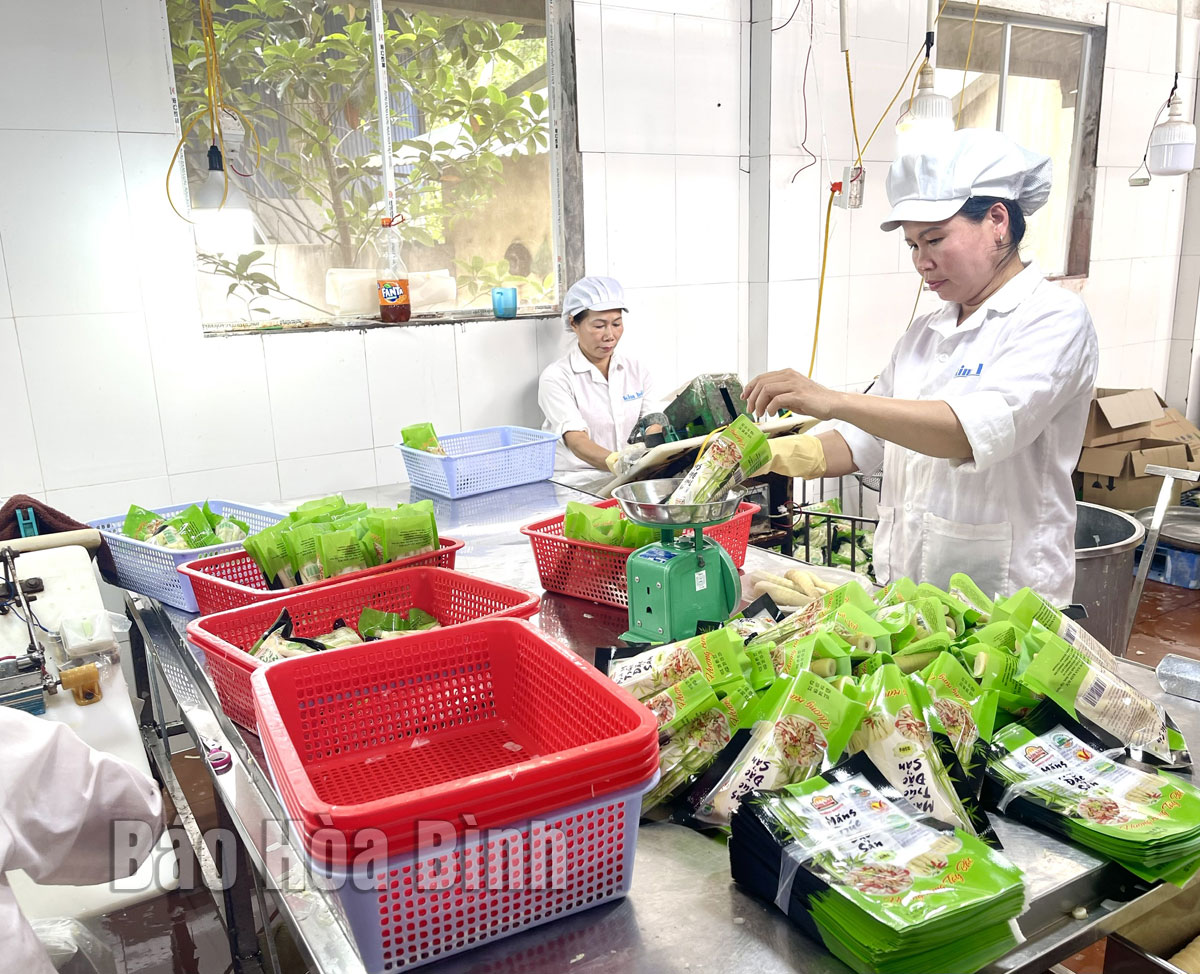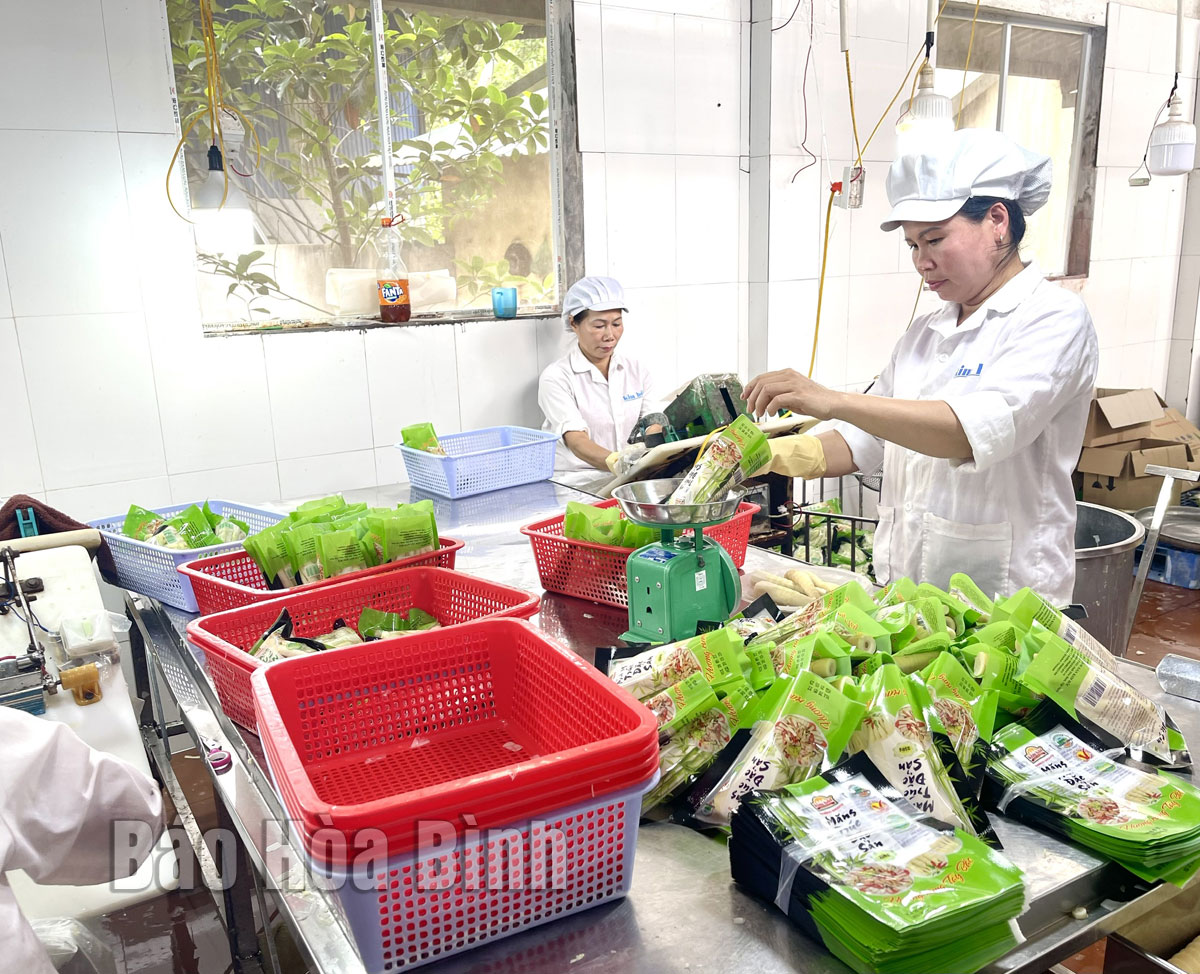
(HBO) – The export of agricultural products has not only brought higher economic value but also contributed to affirming the position of Hoa Binh province’s typical products in foreign markets. Therefore, to promote the gained achievements, this year, all-level administrations are making efforts to find new markets, and improve the quality and diversity of products to meet strict requirements of importing countries.

Bamboo shoots of Kim Boi joint Stock Company in Ba
Hang Doi town (Lac Thuy district) are semi-processed and packed before export.
In early January, the first batch of Cao Phong orange
weighing nearly 7 tonnes was exported to the United Kingdom, marking the
province’s over-40-year efforts to bring Cao Phong orange to the world market
since 1980.
Quach Van Ngoan, Chairman of the Cao Phong district People's
Committee, said that after eight years of being granted a geographical indication,
the product has affirmed its brand, quality and position in the domestic
market, and met export requirements.
In about two years, starting from batches of fresh sugar
cane, semi-processed and processed bamboo shoots, Son Thuy longan, Tan Lac
red-flesh pomelo, Yen Thuy ‘Dien’ pomelo, and Cao Phong orange have been
shipped abroad. Hoa Binh’s key agricultural products have gradually affirmed
their brands and positions in the both domestic and foreign markets. The
province now has six businesses exporting their semi-processed and processed
products to China, Taiwan (China), Japan, Australia, the Republic of Korea, the
Netherlands and Germany, with a total volume of nearly 24,000 tonnes and a
combined value of 514.3 billion VND (21.68 million USD) last year, up 30.95%
and 103% year-on-year, respectively.
With the goal of expanding and finding new markets, since
2022, the province's agricultural sector has helped 40 facilities participate
in domestic trade fairs, and two introduce their products at 2022 Fine Food
Australia. It has also stepped up the dissemination of information about trade
agreements, China’s Decrees 248 and 249 on measures to manage food safety, as
well as legal documents related to Vietnam's international integration and
import and export activities in order to help businesses and people understand
more about regulations on export, thereby applying them for suitable production
and business conditions, and bringing into full play opportunities brought
about by agreements./.
According to data from the Hoa Binh Provincial Party Committee, the industrial production index for the first six months of 2025 is estimated to have increased by 20% compared to the same period last year. This marks the highest year-on-year growth rate for this period since 2020.
In the first six months of 2025, Hoa Binh province’s export turnover was estimated at 1.145 billion USD, marking an 18.11% increase compared to the same period in 2024. Import turnover was estimated at $ 804 million, a 17.15% increase, which helped the province maintain a positive trade balance.
The lives of the ethnic minority farmers in Tan Lac district have gradually improved thanks to the new directions in agricultural production. This is a testament to the collective strength fostered through the professional associations and groups implemented by various levels of the district’s Farmers’ Union.
With the motto the "product quality comes first,” after nearly one year of establishment and operation, Muong village’s Clean Food Agricultural and Commercial Cooperative, located in Cau Hamlet, Hung Son Commune (Kim Boi district), has launched reputable, high-quality agricultural products to the market that are well-received by consumers. The products such as Muong village’s pork sausage, salt-cured chicken, and salt-cured pork hocks have gradually carved out a place in the market and they are on the path to obtaining the OCOP certification.
In the past, the phrase "bumper harvest, rock-bottom prices" was a familiar refrain for Vietnamese farmers engaged in fragmented, small-scale agriculture. But today, a new spirit is emerging across rural areas of Hoa Binh province - one of collaboration, organisation, and collective economic models that provide a stable foundation for production.
Maintaining growing area codes and packing facility codes in accordance with regulations is a mandatory requirement for agricultural products to be eligible for export. Recently, the Department of Agriculture and Environment of Hoa Binh province has intensified technical supervision of designated farming areas and packing facilities to safeguard the "green passport" that enables its products to access international markets.



